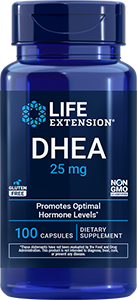
Newsletter
Newsletter
Individuals With Restless Legs Syndrome May Benefit from Specific Vitamins and Minerals

A systematic review of randomized, controlled trials concluded that vitamins B6, C and E, and the minerals iron and magnesium may help improve symptom severity and sleep in people with restless legs syndrome (RLS).
Restless legs syndrome is a neurologic disorder in which people feel an urge to move their legs, which disturbs sleep and impacts quality of life.
For their review, a team from the University of Granada identified 10 randomized, controlled trials that compared the effects of various nutrients to a placebo or prescription drugs among a total of 482 participants. Nutrients evaluated in the trials included vitamin B6, folate, vitamin C, vitamin D, vitamin E, iron (with or without folate), magnesium and the herb valerian (which is used to support sleep).
Authors Pedro González-Parejo and colleagues concluded that magnesium and vitamin B6 improved both sleep quality and RLS symptom severity. Vitamins C and E also improved RLS symptoms, which may be a result of their antioxidant properties. Significant improvement in International Restless Legs Syndrome Severity Scale scores occurred in three of the four studies that evaluated the effects of iron. The authors noted that iron absorption may be an issue.
As potential mechanisms for the nutrients that were found to improve RLS, the authors explained that magnesium plays a role in the health of the nervous system. Vitamin B6’s benefit may be attributable to its support of sleep quality and other factors. Iron deficiency has been associated with a greater incidence of RLS and more severe symptoms in comparison with adequate levels of the mineral. The International Restless Legs Syndrome Study Group clinical guidelines and consensus recommend that oral iron therapy should only be considered for adults with RLS whose serum ferritin levels are less than 75 micrograms per liter.
“This review underscores the importance of exploring alternative therapeutic options for RLS beyond traditional pharmacological interventions,” González-Parejo and his associates concluded.
The review was published July 18, 2024, in the journal Nutrients.1
Products
Apply What You’ve Learned: Restless Legs Syndrome
- Diagnostic criteria for restless legs syndrome (RLS) include:
- a strong and sometimes overwhelming urge to move the legs that may be accompanied by uncomfortable sensations.
- an urge to move the legs that begins or worsens during inactivity.
- partial or total relief upon moving the legs.
- an urge to move the legs that begins or worsens during the evening or night.
- lack of other conditions that cause the above criteria.2
- Restless legs syndrome may be primary, with no known cause, or secondary, due to another condition such as chronic venous or kidney disorders, nerve damage caused by elevated blood glucose, or iron deficiency.2-4 People with restless legs syndrome should be evaluated by a physician and iron deficiency should be corrected, if indicated.
- Lifestyle factors that have been shown to help in many cases of RLS include regular, moderate exercise (except before bed) and avoidance of caffeine and alcohol.5,6
- Pycnogenol®, an extract of French maritime pine bark, was shown to prevent or relieve RLS symptoms in a study involving 45 participants who received standard management for the condition. Among the 21 subjects who received Pycnogenol®, 19 reported a clear benefit, while those who received standard management alone had nonsignificant improvement.7
References
- González-Parejo P et al. Nutrients. 2024 Jul 18;16(14):2315.
- National Institute of Neurological Disorders and Stroke. Restless Legs Syndrome. National Institutes of Health. https://www.ninds.nih.gov/health-information/disorders/restless-legs-syndrome
- Restless Legs Syndrome. National Organization for Rare Disorders. https://rarediseases.org/rare-diseases/restless-legs-syndrome/
- Restless Legs Syndrome. NHS. 2022 Mar 23. https://www.nhs.uk/conditions/restless-legs-syndrome/causes/
- LifestyleRestless Legs Syndrome Foundation. https://www.rls.org/treatment/lifestyle
- Silber MH et al.Mayo Clin Proc. 2021 Jul;96(7):1921-1937.
- Belcaro G et al. Panminerva Med. 2022 Jun;64(2):253-258.
Featured Life Extension Magazine® Article
The Hidden Power of Mushrooms
By Heather L. Makar
People who consume mushrooms on a regular basis enjoy the flavor and textures mushrooms add to a meal, but not everyone is aware of their profound health benefits. A study of over 15,000 individuals who were followed for more than 20 years linked regular mushroom consumption with a 16% lower risk of mortality during that period. Consuming a serving of mushrooms in place of red or processed meat was associated with a 35% lower risk of dying during follow-up.
A compound known as ergothioneine may be responsible for mushrooms’ health benefits. Ergothioneine has been shown to help prevent DNA damage, reduce telomere shortening and protect the brain.
Read Full Article
What's Hot
Health Concern
5-HTP Improves Sleep, Microbiome in Older Men and Women
Findings from a randomized, controlled trial reported in the March 2024 issue of Clinical Nutrition revealed improvements in sleep quality and gut microbiota diversity among older individuals who were given a form of the amino acid tryptophan known as 5-hydroxytryptophan (5-HTP).

Restless Leg Syndrome
Learn how nerve problems can cause symptoms, and how elevated blood sugar and vascular problems can trigger them. Find out what may provide relief.
Related Life Extension Magazine® Articles

Improve Sleep Efficiency and Duration
Clinical studies show that two plant extracts promote restful sleep. One improved sleep efficiency by 74% while the other enhanced restorative sleep by 72%.

Fall to Sleep Faster... Stay Sleeping Longer
Three plant-based extracts work on multiple sleep centers in the brain. A human study showed a remission of insomnia in 85% of subjects.
Highlight
The Life Extension Health News Team combs peer-reviewed scientific journals and other publications for the latest findings about nutrition and vitamins, as well as advancements in anti-aging research. All our news articles are medically reviewed to ensure accuracy.
Learn MoreLife Extension Magazine® Issue Now Online
A remarkable number of healthy-longevity findings have been published over the past 18 months.




